How to survive and thrive
31 Oct 2016 | Jas Hothi
Jas
Hothi summarises the key messages from Professor Tanya Byron's
recent Action for Happiness talk about how we can survive and
thrive in modern life.
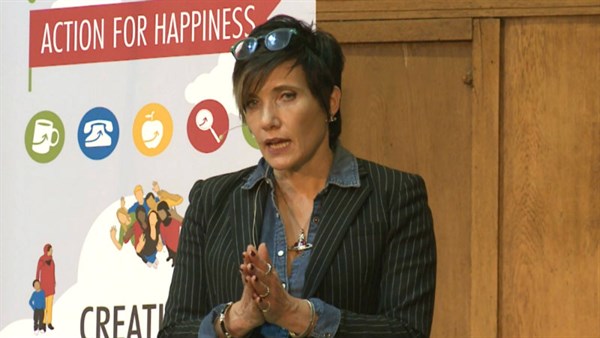
"Resilience is the ability to resist or
bounce back from adversity and not break" ~ Professor Tanya
Byron
Professor Tanya Byron is a clinical psychologist, journalist,
author and broadcaster with an impressive range of experience.
Tanya's recent talk for Action for Happiness was titled "How to
survive and thrive in the modern world" and was particularly
memorable for her delivery and humour, just as much as the great
content.
Tanya started by focusing on the overarching theme of wellbeing
and helping people to "thrive" in life, rather than just focusing
on short-term happiness. Much of Tanya's work has been done with
children and teens, and so this is where much of her content was
focused.
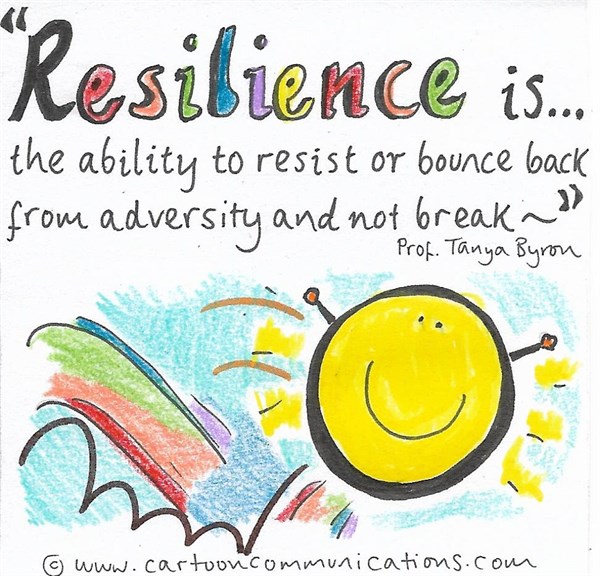
Here are some of the key themes and takeaways from Tanya's
talk.
Mental health: the challenge
Mental health is still given far less priority than physical
health and this needs to change. For example, someone with a broken
arm is treated immediately, whereas someone with a mental health
issue often has to wait weeks for support - or is told that their
condition needs to get more serious to be treated.
How can we think about surviving and thriving as a society if we
are failing to help even those who are most vulnerable? Even though
progress has been made, there is still a long way to go in the
mission to de-stigmatise mental health.
Worrying trends
The UK is near the bottom of the US and European league tables
for mental health. In any given year, 20% of adolescents may
experience a diagnosable mental health problems and the UK has one
of the highest rates of self-harm in Europe.
Anxiety has also increased by around 75% in the last 25 years.
Previously, according to the data anxiety was expected to first
occur around the age of 14-16; now, we are seeing cases of anxiety
in children as young as 8.
Shockingly, only 0.7% of the NHS's budget is spent on adolescent
and youth mental health services; of this, only 18% is spent on
early intervention; the majority of the budget goes towards opening
more beds in "Tier 4" services.
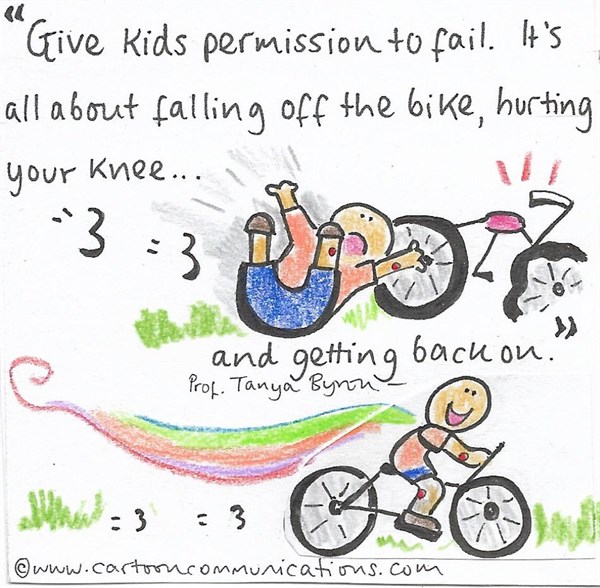
Resilience
The oft-mentioned term "Resilience" is another key contributor
to people being able to thrive, which Professor Byron describes as
"the ability to resist or bounce back from adversity, without
breaking".
Resilience is built by parental upbringing, but it must be
managed in order for individuation to occur later on. As a society
we need to focus more on building strengths, and not just focus on
fixing problems when things goes wrong. We need to learn more about
why, after suffering stressful or traumatic experiences, some
people "break" but others do not.
"Children need to be encouraged to take
risks and fail"
Why are more young people struggling?
In the modern world, parents seem less able to use the word "no"
when raising children. As a result, there is more demand for
immediate gratification. Insecure parents want their children to
"like" them and "be their friend". However, this undermines their
ability to set boundaries and effectively perform their role as a
loving parent.
Parents are also spending more time on praise rather than
constructive criticism - another factor which, Professor Byron
argues, is leading to a lack of resilience - and increased mental
health issues - in children.
Traditionally, those children who were most at risk of suffering
from mental health issues were those in poverty, or from
underprivileged backgrounds. But in recent years it is often young
people from stable, affluent backgrounds who are the ones breaking
down and struggling to thrive.
Young people today are more protected and less able to take
risks. The media helps contribute to the perception that the world
is scarier - but is this really the case? We are constantly
bombarded with negative news which affects us - leading to
increased anxiety, that cripples and distorts our logical thought
towards paranoia.
As such, we try to create a 'safe' environment, but this
undermines children's ability to grow and develop resilience.
Children need to be encouraged to take risks and fail.
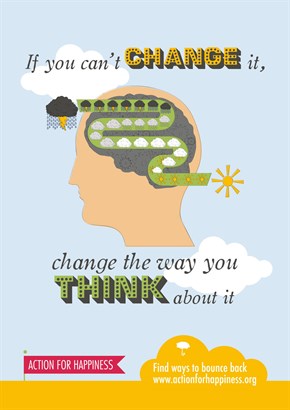
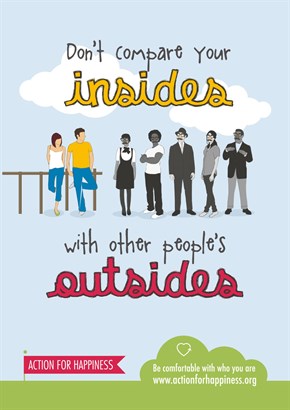
Developing brains
These days around 50% of mental health problems in the
population first emerge by around the age of 14. During these vital
early teenage years, the pre-frontal cortex in the brain - which is
responsible for our problem-solving and decision-making - is going
through lots of development; in fact, it is effectively being
overhauled.
The pre-frontal cortex is driven by pleasure and reward systems
and young people need to seek out risk - and therefore
individualise - to be able to survive and thrive. However, due to
young people being over-protected, they are being denied of this,
leading to increased vulnerability to mental health issues later
on.
Other pressures on young people
Modern society puts huge expectations on young people, who
desperately seek markers of success, such as social media "likes"
and numbers of so-called "friends", which have become the measures
of the popularity stakes in schools.
Our results-focused school system also places excessive focus on
IQ rather than EQ (Emotional Intelligence). And those subjects
which build character and resilience - such as Sport, Art and Drama
- are being squeezed or brushed aside in favour of others.

Key Action Points
Professor Byron believes it's vital that we look at mental
health from a "strengths" perspective and not just a "deficit"
one.
Resilience and Emotional Regulation (the ability to understand
oneself and external boundaries) are key contributors to a
thriving life and we must look at all factors - Bio, Psycho &
Social. In order words, we need to understand the "whole
person".
The key way to survive and thrive is not striving to be
happy all the time - which is unrealistic. It is about learning to
cope with pain and misery, to bounce back from difficulties and to
accept yourself for who you are.
Recommended Reading
- Free Range Kids - book which challenges
the notion of "helicopter parenting" (also referred to as "curling
parenting").
-
The impact of the lack of time - mental health expert
Natasha Devon gives her take on the youth mental health
crisis
About the author
Jas Hothi is an ex-recruiter who has recently completed a
Masters in Positive Psychology, and a long-standing supporter
and volunteer with Action for Happiness.
Many thanks to Sam from Cartoon
Communications for the wonderful doodles.